Muscles & Types of Muscles | Science Class 5 PDF Download
| Table of contents |

|
| Muscles |

|
| Types of Muscles |

|
| Working of Muscles |

|
| Development of Muscles |

|
| Function of Muscles |

|
Muscles
Our bones cannot move on their own. They need the help from the muscles and joints to move. Muscles are fleshy bundles of thin elastic-like material in the body connected to the bones by tendons.
- Muscles also help us to grow and remain strong.
- They work in much important metabolic activities such as digestion, respiration, excretion, etc.
- Our body has more than 650 muscles, which is approximately half of a person’s body weight.
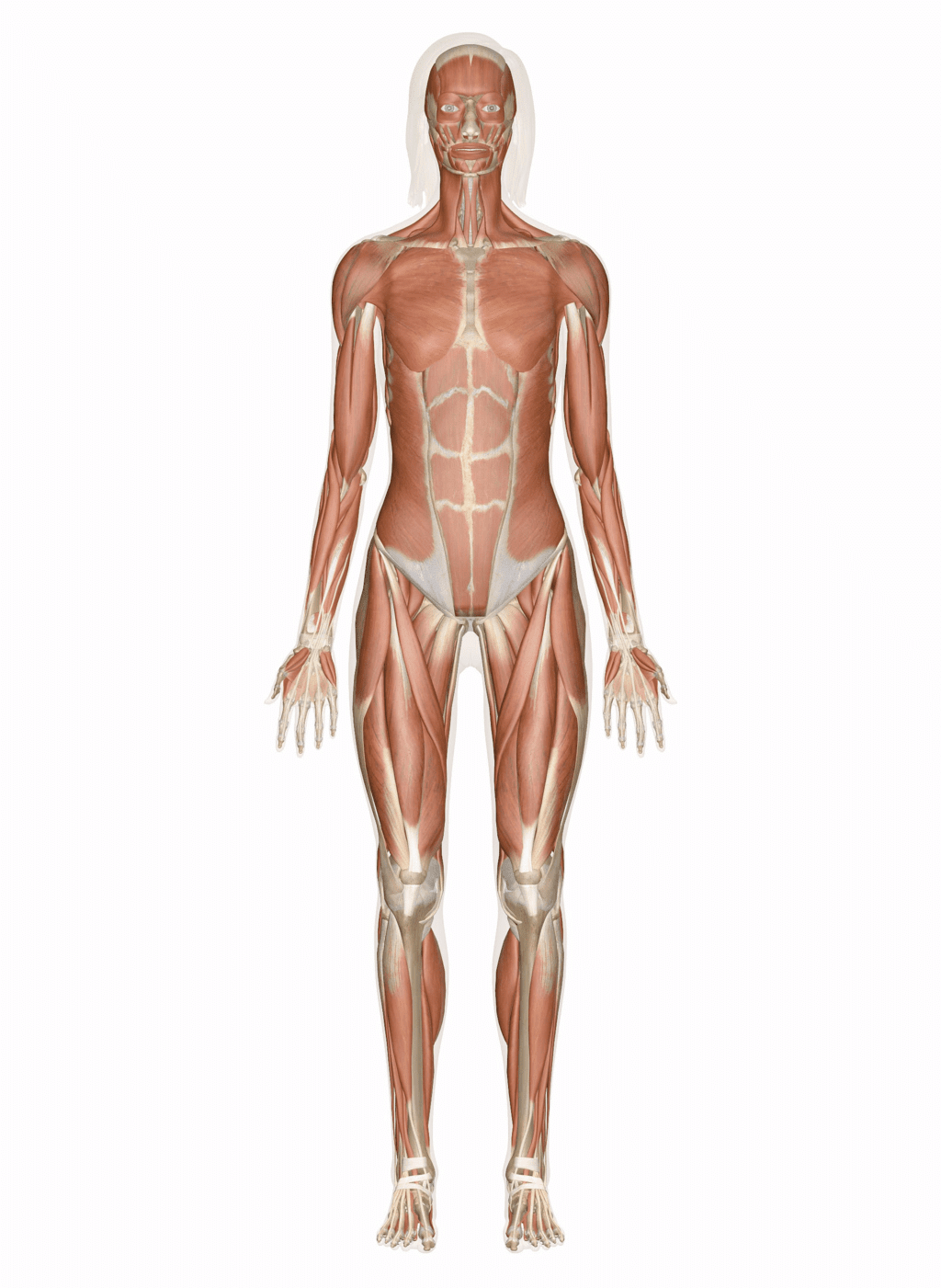
- Muscles act in one direction only, i.e, they can only pull bones but cannot push.
- Two muscles are required to move a bone. For example, when we raise our arm, the biceps muscles contract and pull up the forearm, but when we lower the forearm, the triceps muscles contract.
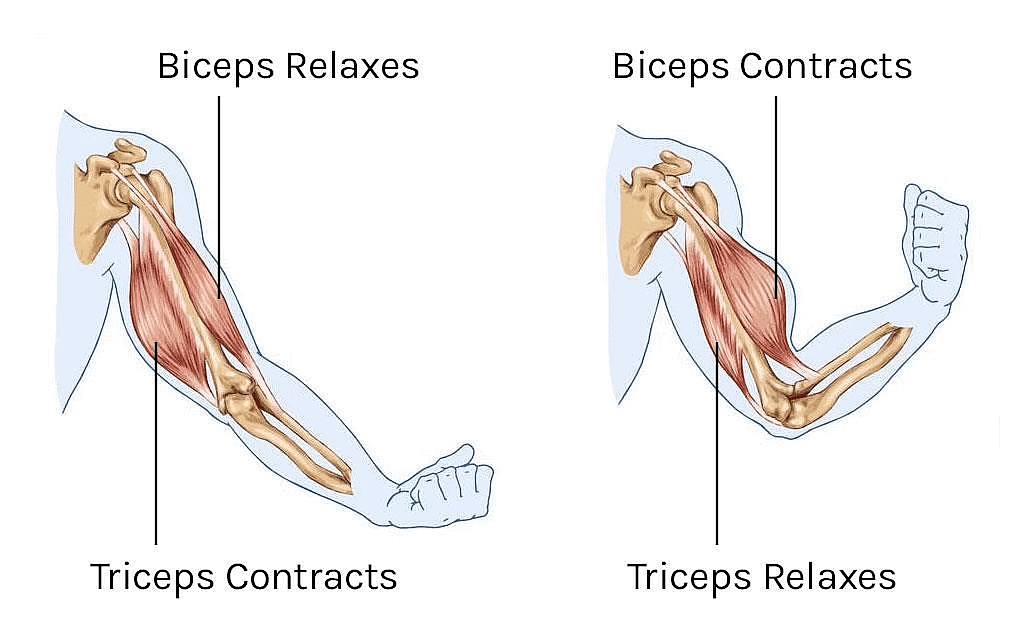
Types of Muscles
According to their structure and functions, there are 3 types of Muscle
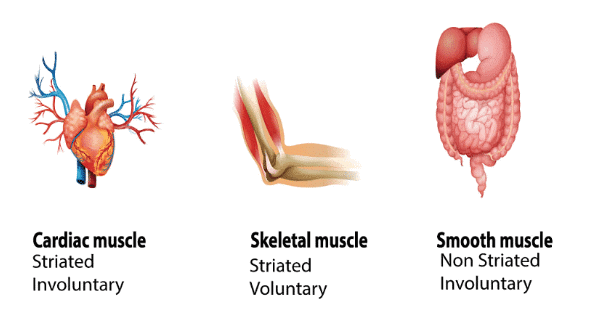 Types of Muscles
Types of Muscles
1. Voluntary or skeletal muscles
- The muscles which are under our control are called voluntary muscles.
- These muscles bring about the movements of the skeleton.
- The voluntary muscles contract quickly and powerfully.
- These muscles are found in arms, legs, eyes, tongue etc.
- We run, walk, bend and stretch with the help of these muscles.
2. Involuntary or smooth muscles
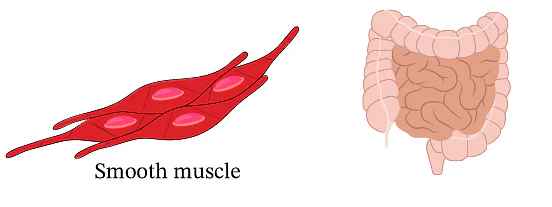
- The muscles which are not under our control are called involuntary muscles or smooth muscles.
- These muscles control the movement in our alimentary canal (digestive tract), the flow of blood in the blood vessels and the movement of ribs during breathing.
3. Cardiac muscles
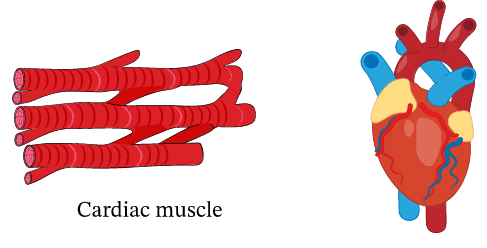
- The muscles of the heart are different from the other two types.
- These are involuntary in nature but are structurally like voluntary muscles.
- Cardiac muscles are present only in the heart.
- As the muscles are involuntary, they are not in our control and continue working on their own throughout our life without stopping or getting tired.
Working of Muscles
 Working of Forelimbs (Arms)
Working of Forelimbs (Arms)
- Muscles work in pairs by shortening or contracting.
- When muscles contract, they become short and the bones come closer to each other.
- When our knee bends during walking or running, two muscles work simultaneously.
- One muscle contracts and becomes shorter whereas the other one relaxes.
- When the leg is stretched, the reverse process occurs.
- Each movable joint has two sets of muscles, one to pull the bones up and the other to pull the bones back.
Development of Muscles
To have a healthy and well formed body, the muscles must be strong. To have strong muscles:
1. We should exercise regularly.
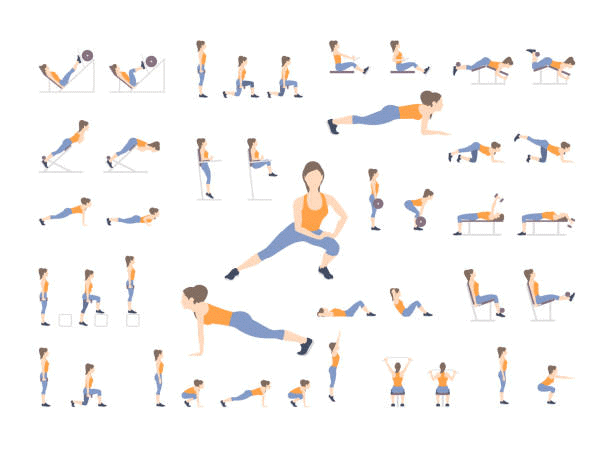
2. We must play games.
3. We must take proper rest.
4. We must have good eating habits.
We should not adopt any bad habits like smoking, chewing tobacco, drinking alcohol or taking any kind of harmful drugs. These bad habits damage our body muscles. Thus, regular exercise and games, proper rest and good eating habits keep our body healthy and strong.
Function of Muscles
- Muscles play an important role in our body.
- They Produce movement: Our body moves due to muscle contraction.
- Maintain posture: Voluntary or skeletal muscles help in maintaining our body posture.
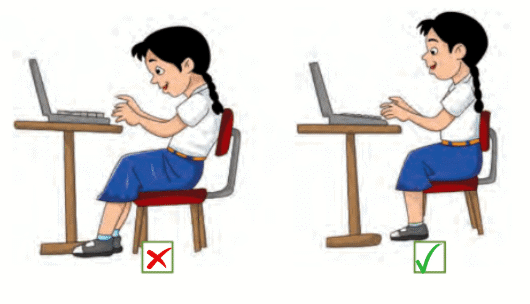
- Stabilize joints: Muscles prevents our joints from damage by holding them while moving.
- Generate heat: Muscles also generate heat in the body. It is a by-product of muscular activities.
|
42 videos|230 docs|45 tests
|
FAQs on Muscles & Types of Muscles - Science Class 5
| 1. What are the three types of muscles in our body? |  |
| 2. How do skeletal muscles work? |  |
| 3. How do smooth muscles differ from skeletal muscles? |  |
| 4. What is the role of cardiac muscles in our body? |  |
| 5. How do muscles develop and grow? |  |
















